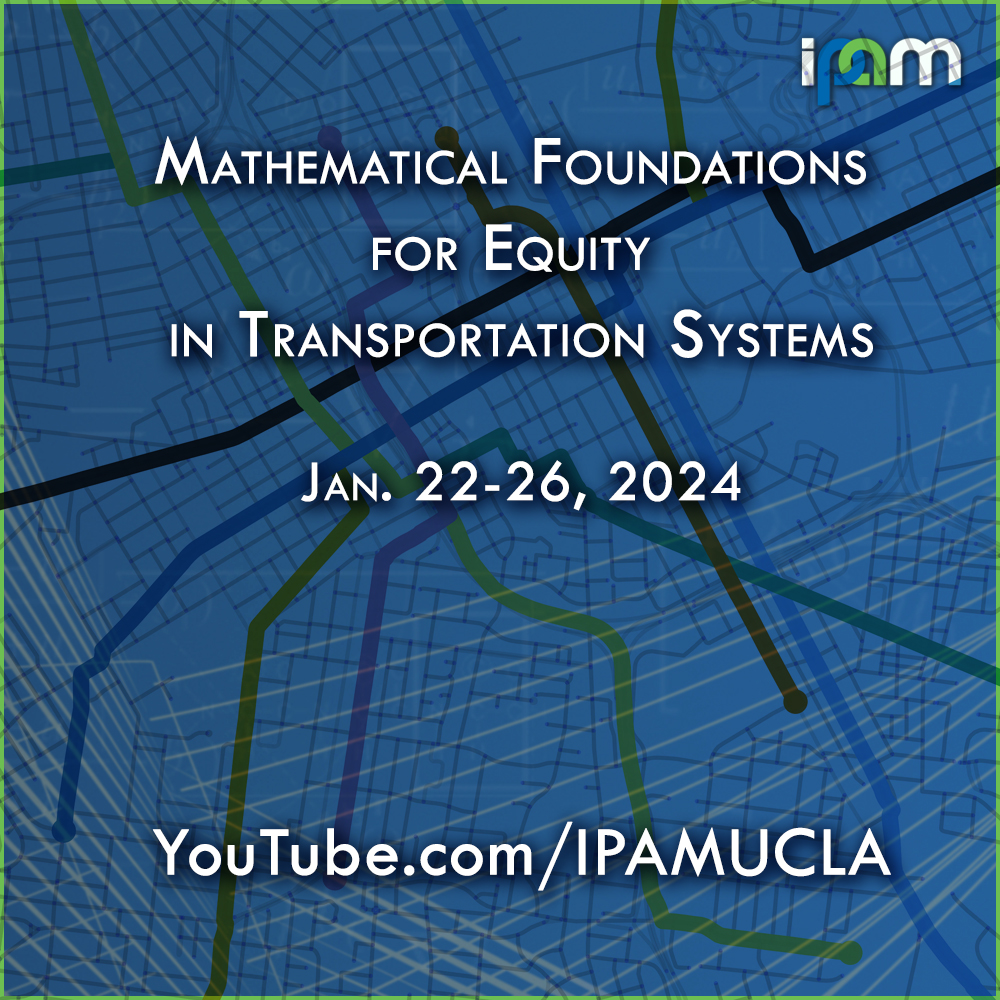Frauke Behrendt - Who Counts? Mobility Data Justice - IPAM at UCLA
Presenter
January 23, 2024
Abstract
Recorded 23 January 2024. Frauke Behrendt of Technische Universiteit Eindhoven presents "Who Counts? Mobility Data Justice" at IPAM's Mathematical Foundations for Equity in Transportation Systems Workshop.
Abstract: The ‘Mobility Data Justice’ (MDJ) approach highlights (1) distributive justice in terms of access, accumulation and distribution of/to mobility and data (2) procedural justice in terms of who is included in the taking of decisions and the design of mobility and data infrastructures, and (3) epistemic justice in terms of what counts as ‘mobility, ‘data’ and knowledge (Behrendt and Sheller 2023). This talk draws on MDJ to challenge the current focus of much mobility research that aims to address climate change, taking a social justice and global perspective.
Around the world, there are places where the transition to electric mobility is already happening very quickly, or where a significant number of startups show great potential for emerging change. Rapid adoption of electric cars in Norway? Companies like Tesla in the US? These are not the only or most important places. What about the fast electrification of rickshaw fleets in South Asian countries like Bangladesh? And what about all the investment pouring into electric motorcycle startups in sub-Saharan Africa like Ghana? How can the Global North learn from these low-car mobility transitions? And what is the role of data and social justice in all this? What are implications for governance, especially around AI (Servou and Behrendt 2023)?
This talk uses the Mobility Data Justice approach to analyze the impact of rickshaws or motorcycle taxis not being registered and thus not ‘counting’ (distributive), to explore who is included/excluded in decisions on apps/platforms and e-governance for motorcycle taxies and rickshaws (procedural), and to establish a new understanding of what electric mobility transitions and their key locations are (epistemic). Based on this analysis, the talk explores challenges around linking social-justice mobility approaches with computational and mathematical approaches.
Bibliography:
Behrendt F and Sheller M (2023) Mobility data justice. Mobilities 0(0). Routledge: 1–19.
Servou E, Behrendt F and Horst M (2023) Data, AI and governance in MaaS - leading to sustainable mobility? Transportation Research Interdisciplinary Perspectives 19. Elsevier Ltd: 1–1
Learn more online at: https://www.ipam.ucla.edu/programs/workshops/mathematical-foundations-for-equity-in-transportation-systems-january-22-26-2024/?tab=overview
